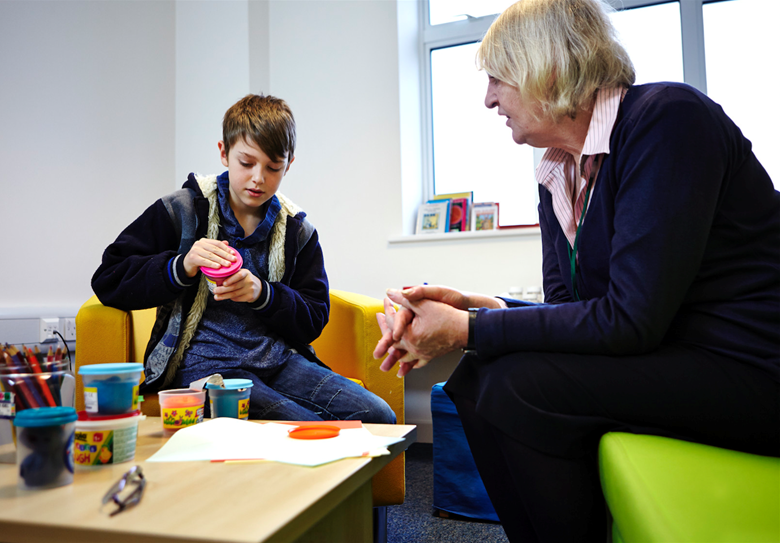Major trial finds ‘promising' results for sexual abuse therapy
Neil Puffett
Monday, February 22, 2016
Therapeutic support delivered by social workers can reduce the numbers of children experiencing the highest levels of trauma following sexual abuse, a major study has found.

A randomised controlled trial into an NSPCC programme called Letting the Future In, which focuses on creative therapies such as painting, drawing and storytelling, for children aged between four and 17 who have experienced sexual abuse, found marked improvements among those taking part.
The study found that, for children aged eight and older, the proportion of children receiving the intervention who experienced the highest levels of trauma fell from 73 per cent at the start of the programme to 46 per cent after six months.
For younger children who completed the programme, there was little change six months after starting Letting the Future In.
However, for those children remaining in the service after one year with the highest levels of trauma (clinical or significant difficulty) had dropped to 40 per cent, from 89 per cent.
Researchers said this may be because the intervention takes longer to work for younger children, or because carers took longer to recognise the improvements.
The NSPCC said the evaluation is the largest multi-site randomised control trial in the world for a sexual abuse intervention.
The intervention is delivered by social workers with additional training in therapeutic work. In individual sessions, children have a chance to talk about their abuse experiences and to express themselves through creative therapies.
These sessions are intended to enable the children to safely work through past experiences and come to understand and move on from what has happened. The child’s parent or safe carer is also offered individual sessions as well as joint sessions with their child.
Jon Brown, head of development and impact at the NSPCC, said the findings provide promising indications that the intervention can significantly reduce the highest levels of trauma experienced by children who have been sexually abused.
“We know that professionals say support for children after abuse is inadequate," he said.
"Over half say that tight criteria to access local NHS mental health services mean these children are increasingly struggling to access vital help.
“This study shows that therapeutic work can be delivered by a greater range of professionals, including social workers who receive additional training in therapeutic work – as in the case of Letting the Future In.”
John Carpenter, professor of social work and applied social science at the University of Bristol and lead author of the report, said: “Evidence-based therapeutic approaches are vital to help all children deal with the effects of sexual abuse.
"It is crucial that commissioners know what interventions work in ‘everyday’ community-based services to improve outcomes for children, in a cost-effective way.
"This ‘real world’ evaluation of Letting the Future In is a significant contribution to the evidence base, providing benchmarks for others to evaluate interventions.”
CYP Now is holding a one-day national conference, Child Sexual Abuse and Exploitation: Prevention and Treatment, in London on 18 March. Speakers include senior figures from NSPCC, Office of the Children's Commissioner, CEOP, Barnardo's, Catch 22, Brook, plus local authorities and academics. See the full programme here.




